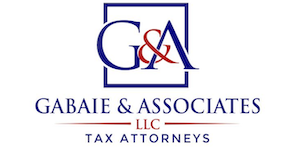A notice from the Internal Revenue Service (IRS) CP508C is a notice that the taxpayer is “seriously delinquent” in unpaid taxes. For a taxpayer who gets a CP 508C notice in the mail, unless payment arrangements are made with the IRS, the taxpayer will have passport restrictions and face a tax lien or levy on property and assets.
If you receive a CP508C notice from the IRS, contact your reliable tax attorney as soon as possible. In Maryland, contact Juda Gabaie at Gabaie & Associates, LLC for help.
What is an IRS Notice CP508C?
A CP508C is a notice to the taxpayer that the IRS has identified tax debt as “seriously delinquent.” Seriously delinquent taxes under IRS Code 7345 is defined as an unpaid, legally enforceable federal tax liability of an individual:
- Which has been assessed,
- Which is greater than $52,000 (in 2019, including interest and penalties), and
- A notice of lien has been filed and administrative rights have been exhausted or elapsed or a levy is made.
A CP508C notice is provided after an initial tax assessment or notice of intent to levy. By this time, the initial chance to challenge the assessment has generally passed. However, there may still be an opportunity to challenge or reverse the assessment, depending on the individual situation. Talk to your tax attorney as soon as possible after receiving a CP508C or other overdue tax notice.
Passport and Travel Restrictions with Tax Debt
After a CP508C notice is issued, the IRS notifies the State Department under the Fixing America's Surface Transportation (FAST) Act. As a result, the individual will not be able to get their passport issued or renewed and may have their current passport revoked, limiting the ability to travel outside the U.S.
The passport restrictions will not be lifted until the certification is found to be erroneous, the debt is fully satisfied, or the debt is no longer considered seriously delinquent. If the taxpayer believes the certification is in error, the taxpayer may file a civil lawsuit to determine whether the certification was erroneous.
How Do I Reverse a CP 508C Action?
In order to reverse the seriously delinquent tax debt certification (CP508C), the taxpayer generally has three options. These include:
- Pay the tax debt in full;
- The tax debt is no longer seriously delinquent; or
- The certification is in error.
A tax debt does not necessarily have to be paid in full to remove the certification. If the tax debt is paid to the point where it drops below the tax limit ($52,000 in 2019), then the certification should be reversed. However, as interest and penalties continue to accrue on any unpaid tax debt, the amount can again increase to the seriously delinquent level.
Make a Payment in Full or Make Payment Plans
The taxpayer can contact the IRS to make a payment in full by the due date. If the taxpayer cannot make a payment in full, the taxpayer can contact the IRS to enter into a payment plan. Payment plan options include:
Your tax lawyer may also be able to negotiate an offer in compromise. This may allow you to reduce your total tax liability and pay less than the total tax debt through negotiating a settlement with the IRS.
Questions About Your IRS Notice for Maryland Tax Lawyer
Contact your tax lawyer as soon as possible after receiving notice of seriously delinquent tax debt. If you received a Notice CP 508C from the IRS, contact Gabaie & Associates, LLC for a free consultation. You can contact Juda Gabaie online or call (410) 862-2198 for help with your IRS or Maryland tax issues.
